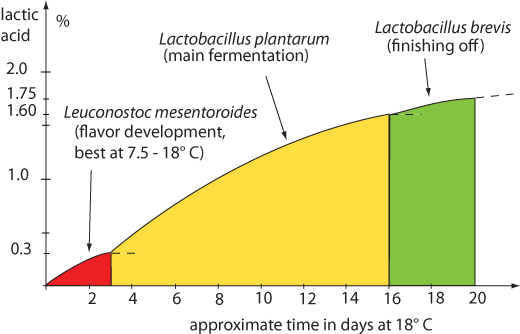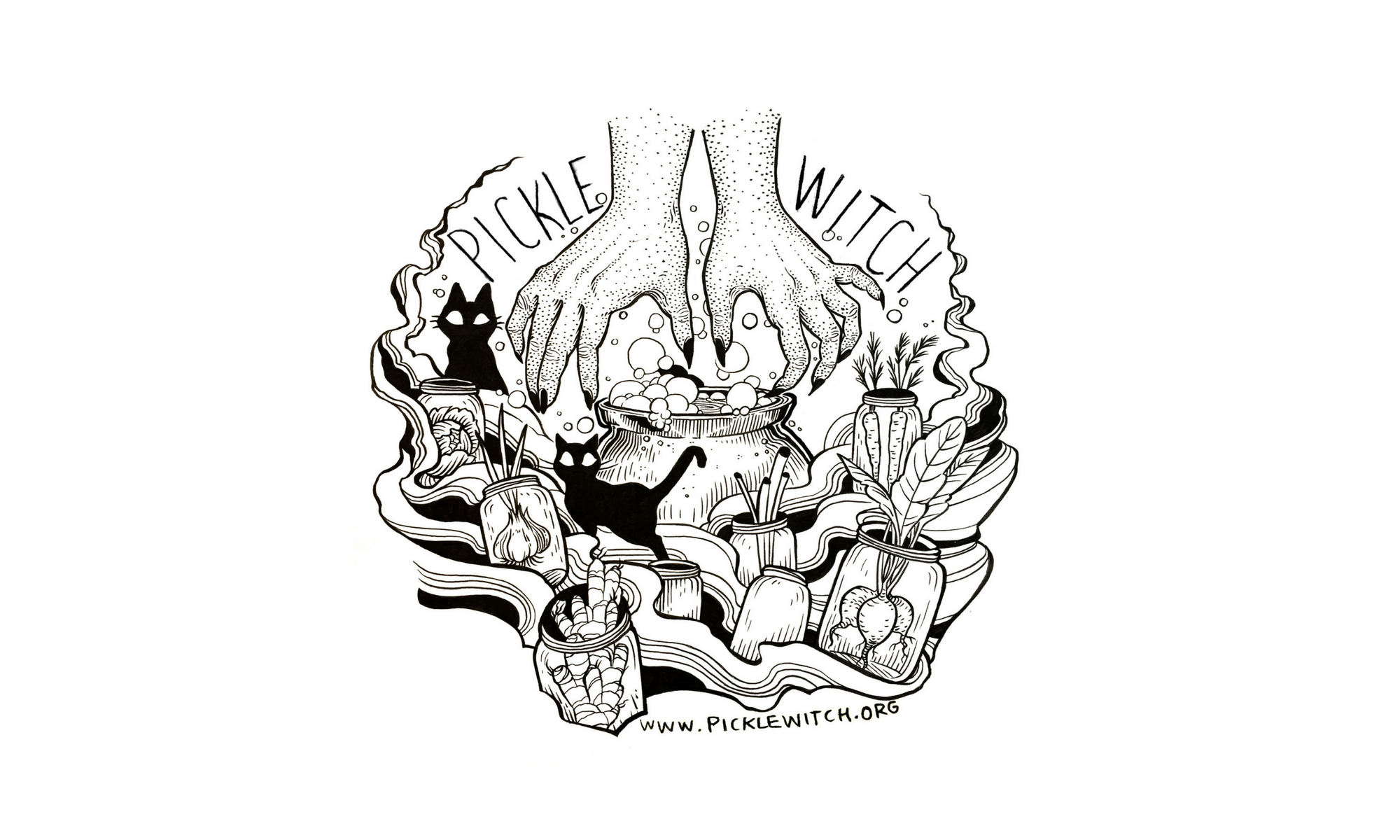Wild Fermentation
A lot of people are getting into fermentation through another enthusiastic educator, Sandor “Sandorkraut” Ellix Katz. I appreciate the breadth of his knowledge and his spirit of experimentation.
I think every house needs a copy of Wild Fermentation, and I often read sections of The Art of Fermentation which is kind of like an encyclopedia of fermented foods and culture from around the world. The Wild Fermentation forum is full of good info, too.
Stages of Fermentation for Sauerkraut
If you want to get technical, here is an article about the fermentation process for ‘kraut.

Detailed ‘Kraut Instructions
Here is another article on sauerkraut, from Penn State’s Agricultural Department.
National Center for Home Food Preservation
A section on their website devoted to trouble-shooting fermented pickles.
Health Benefits of Fermented Foods
There is a lot of information out there about the health benefits of fermented foods. The University of California, Berkeley, School of Public Health’s Berkley Wellness program is a well-researched and reliable source.
Fermentation increases levels and bioavailability of some nutrients (such as zinc, magnesium, and B vitamins), while it reduces “anti-nutrients” (such as phytates, which interfere with absorption of minerals) and other unwanted compounds (such as natural toxins in foods). It reduces lactose in dairy products, making them easier for some people to tolerate.
Some fermented foods also introduce microorganisms into the gut, which may help maintain a healthy digestive system; in turn, byproducts created by them, including bioactive peptides, may have a beneficial effect on blood pressure, cholesterol, immunity, and cancer prevention. Researchers have noted that these bioactive compounds may even have beneficial effects on the brain.
